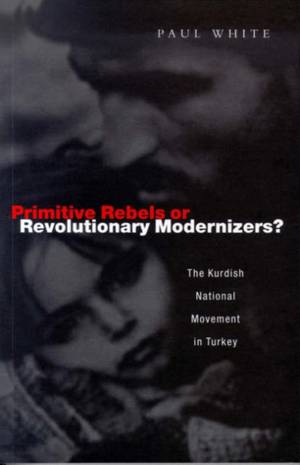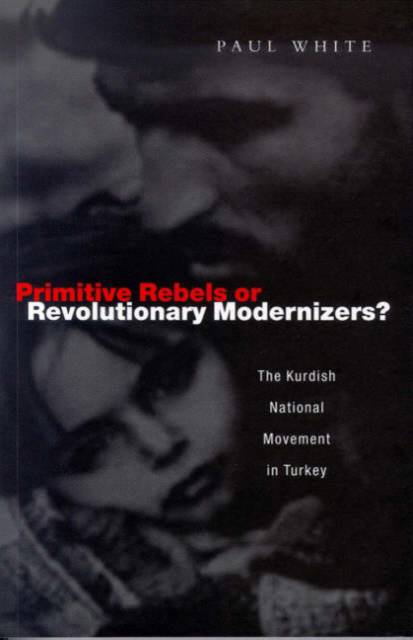
- Afhalen na 1 uur in een winkel met voorraad
- Gratis thuislevering in België vanaf € 30
- Ruim aanbod met 7 miljoen producten
- Afhalen na 1 uur in een winkel met voorraad
- Gratis thuislevering in België vanaf € 30
- Ruim aanbod met 7 miljoen producten
Zoeken
Primitive Rebels or Revolutionary Modernizers
The Kurdish Nationalist Movement in Turkey
Paul J White
Hardcover | Engels
€ 203,95
+ 407 punten
Uitvoering
Omschrijving
Protests worldwide followed the capture and trial of the Kurdish nationalist leader Abdullah Öcalan in 1999. Millions of people are now aware of the long fight by Öcalan's PKK guerillas in Turkey. But where does the PKK come from? What are its aims? Who supports it? What will its future be without Öcalan to guide it? And, most important of all, is there now a real prospect for a peaceful resolution of the Kurdish question in Turkey and a democratic future that recognises the cultural plurality of the country?
This timely book seeks answers to these questions and provides an informative, up-to-date and readable account of the Kurdish reality in Turkey today. Its focus is a critical examination of the Kurdish nationalist movement -- especially the largest and most powerful grouping, the PKK. Its evolution is traced. Initially reliant on armed struggle, the PKK had in fact, the author shows, made significant strides towards becoming a mainstream mass political movement before Öcalan's arrest. Original interviews with Icalan, his rival Kurdish nationalist leaders and ordinary PKK guerillas are woven into the text. They make possible an understanding of Abdullah Öcalan's personality as well as revealing much about leadership in contemporary Kurdish nationalism. Of particular interest also is the author's revisionist discussion of the Alevi Kurds.Specificaties
Betrokkenen
- Auteur(s):
- Uitgeverij:
Inhoud
- Aantal bladzijden:
- 272
- Taal:
- Engels
Eigenschappen
- Productcode (EAN):
- 9781856498210
- Verschijningsdatum:
- 1/10/2000
- Uitvoering:
- Hardcover
- Formaat:
- Genaaid
- Afmetingen:
- 140 mm x 216 mm
- Gewicht:
- 462 g

Alleen bij Standaard Boekhandel
+ 407 punten op je klantenkaart van Standaard Boekhandel
Beoordelingen
We publiceren alleen reviews die voldoen aan de voorwaarden voor reviews. Bekijk onze voorwaarden voor reviews.








